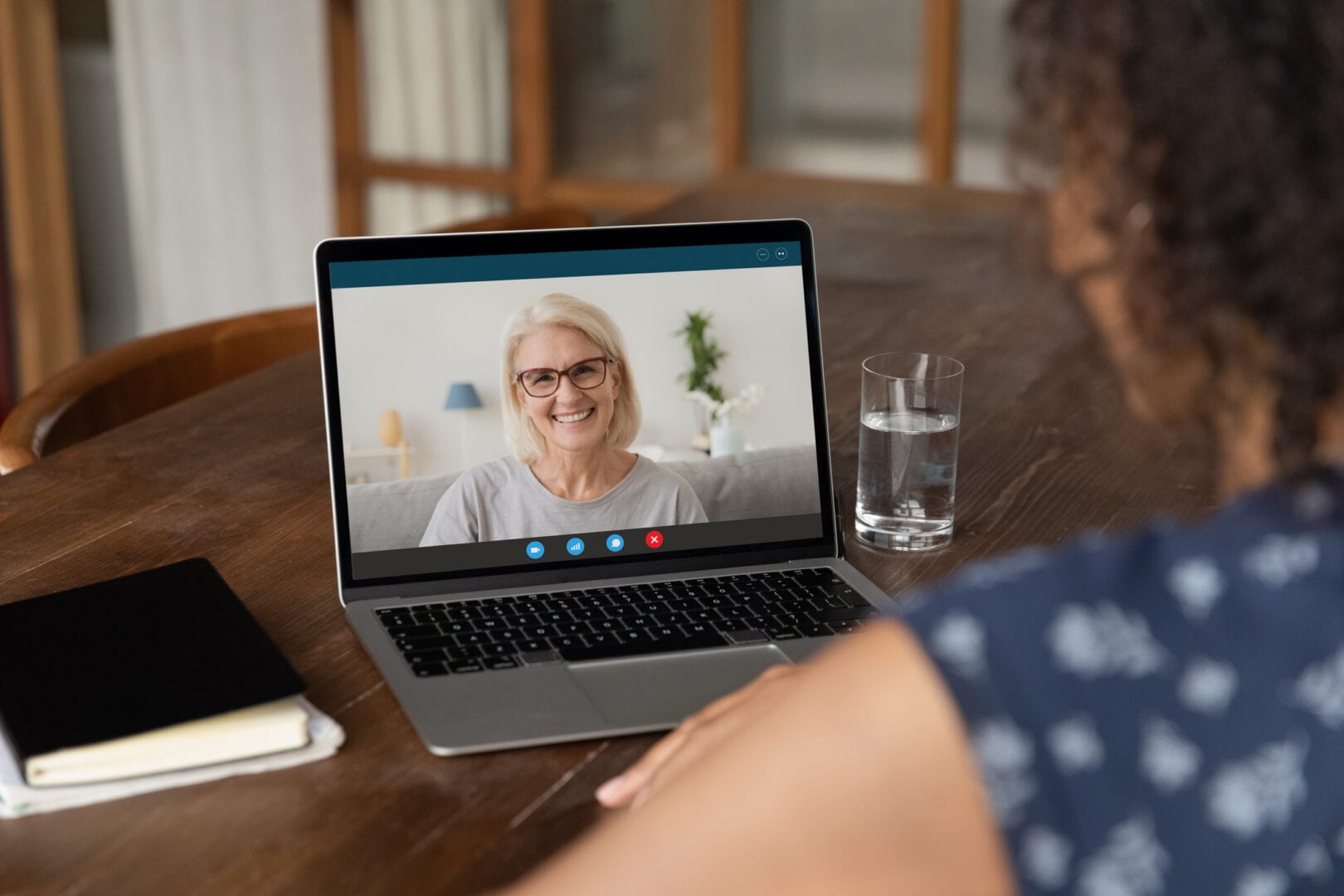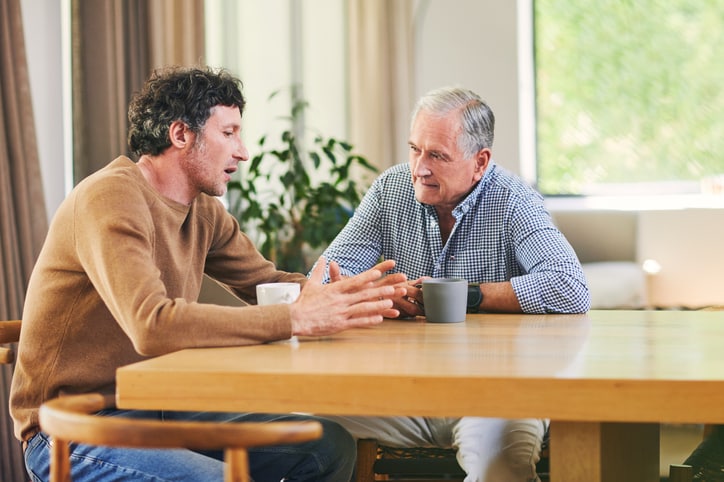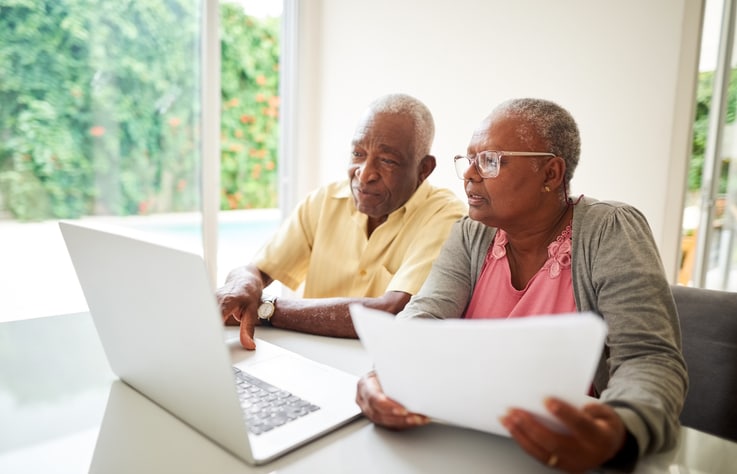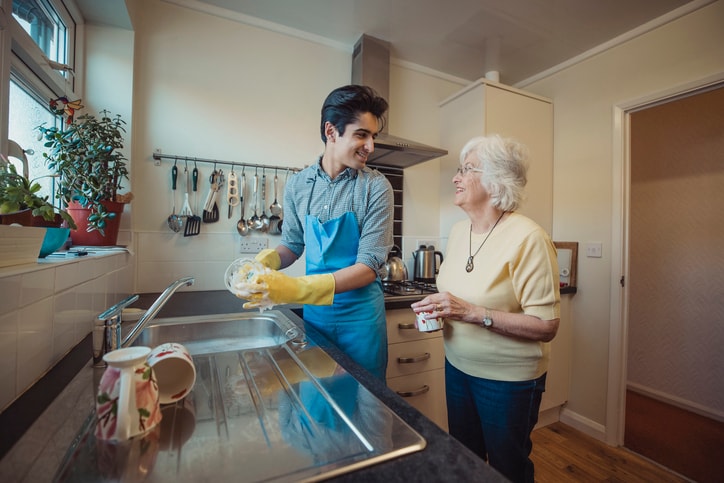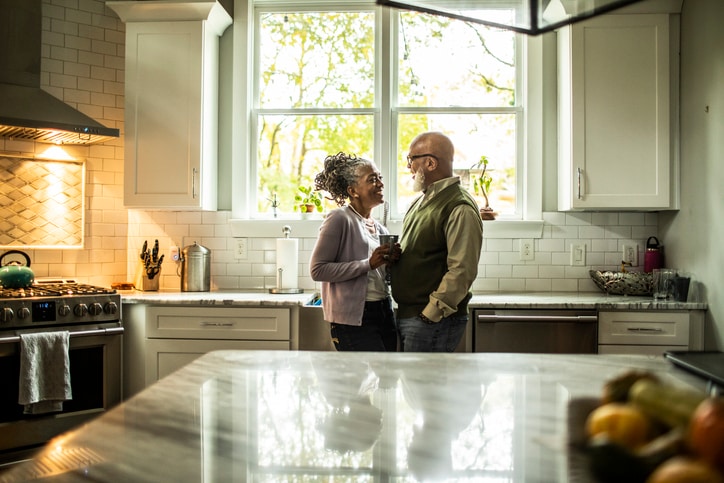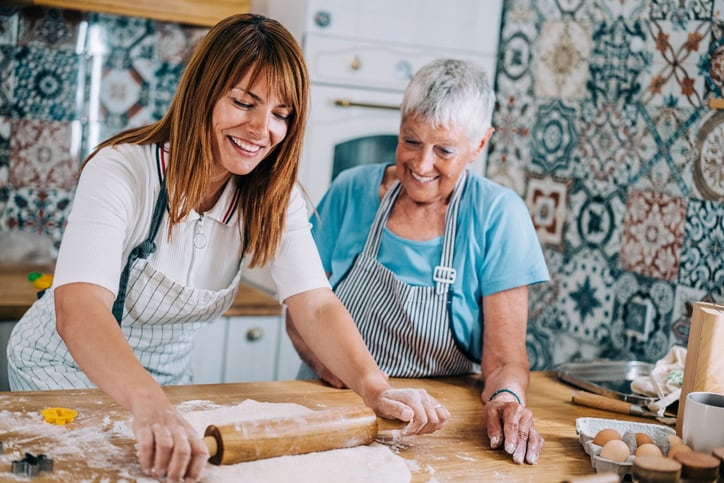By Libby Ryan
It can feel like you’re juggling a million worries when entrusting your loved one’s care to someone new, and the added stress of the extremely contagious omicron variant of the coronavirus doesn’t help.
If you’re feeling overwhelmed about hiring a new senior caregiver at this moment in the pandemic, you’re not alone. Safety is the number one priority — and a major topic of discussion for any interview with a new caregiver. Here, everything you need to know going into an interview with a potential caregiver, from vaccination status to sick pay.
(Note that before even diving into an interview, it might be best to schedule the meeting as a phone or Zoom call. That way, you can make sure you and your interviewee are on the same page about safety before being in the same room.)
Questions to consider asking caregivers during the pandemic
1. What is your vaccination status?
The COVID-19 vaccine remains the best protection we currently have against the virus, says Terri Harvath, director of the Family Caregiving Institute at the Betty Irene Moore School of Nursing at UC Davis and president of the Gerontological Society of America.
“It’s absolutely OK to ask a caregiver before you’re hiring them as to whether or not they’re vaccinated,” says Dr. Nisha Rughwani, an associate professor of geriatrics and palliative care at the Icahn School of Medicine at Mount Sinai Hospital in New York City.
There’s been a lot of buzz recently about whether folks should have to disclose their vaccination status, often invoking the HIPAA guidelines, that prohibit doctors from medical information with a patient’s consent. But that doesn’t apply to this situation, says Dr. Rughwani. HIPAA only applies to health care providers, health plans and health care clearinghouses.. During an interview, you can freely ask someone about their vaccination status, and they can choose what they’re willing to share.
“If they don’t want to answer it, or if they’re not [vaccinated], then it’s a point for you to decide whether or not you want to hire that person or not,” says Dr. Rughwani.
“It’s absolutely OK to ask a caregiver before you’re hiring them as to whether or not they’re vaccinated.”
— DR. NISHA RUGHWANI, ASSOCIATE PROFESSOR OF GERIATRICS AND PALLIATIVE CARE
2. Will you follow COVID-19 safety protocols?
With the omicron variant spreading rapidly, it’s a good opportunity to revisit the best practices for COVID-19 safety. Luckily, the methods are the same ones we’ve grown familiar with throughout the past 18 months, says Harvath. However, even if the caregiver and senior are both vaccinated, it’s important to stick to strong safety measures to prevent the potential for breakthrough infections.
It’s hard to keep six-feet of distance, because if you’re caring for someone, you’re going to have to get close to them, acknowledges Dr. Rughwani. So the focus should be on other preventative measures, such as:
- Frequent hand-washing.
- Sanitizing surfaces.
- Prioritizing ventilation when possible, such as opening windows in shared rooms or cars.
“Even though we know that for the most part, this is airborne, sanitizing is always a good idea,” says Dr. Rughwani. “You never know what you pick up on a surface.”
The best part? This also helps to prevent other germs, such as the flu or respiratory syncytial virus (RSV), from getting a foothold in your loved one’s home.
3. Are you prepared to wear a mask for the entire time you will be working?
Current CDC guidelines recommend that everyone wears masks indoors in places where the virus is spreading, and right now, that’s just about everywhere in the country. So it’s important to discuss whether a potential hire is prepared to wear a mask during work.
“It is strongly recommended that anyone who does not live with an older person but is in contact with them indoors wear a mask that covers their mouth and nose,” says Harvath.
The CDC is recommending masks for everyone regardless of vaccination status, besides immediate families who live together. It might be tempting to think that, since a caregiver spends so much time with your senior loved one, they function like a part of the household. However, a caregiver doesn’t fall into this category as they will be coming in and out of the home, explains Dr. Rughwani.
4. What safety choices are you making in your personal life?
With the world opening up much more than in previous stages of the pandemic, balancing risks with safety can get complicated.
One of the priorities of a caregiving job is keeping the client that they’re going to be caring for as safe as possible in every way, says Dr. Rughwani. She recommends having a conversation about “making sensible choices” as far as virus safety measures go outside of work hours, including:
- Social distancing and staying six feet apart from people outside of their household.
- Wearing masks indoors.
- Limiting close contact to unvaccinated people.
- Avoiding large gatherings.
- Staying away from crowded places when possible (or wearing masks if it’s not possible to avoid, such as on public transit).
- Following testing and quarantine rules after potential exposure to the virus.
- Communicating travel plans and following CDC guidelines around travel.
“It is strongly recommended that anyone who does not live with an older person but is in contact with them indoors wear a mask.”
— TERRI HARVATH, PRESIDENT OF THE GERONTOLOGICAL SOCIETY OF AMERICA
Currently, the CDC advises fully vaccinated folks “self-monitor” for COVID-19 symptoms after traveling, so it’s important to openly discuss travel plans with caregivers to determine safety measures to take when they get back.
“It’s very hard to control what people do outside of their work hours,” she says. So all you can really do is have an open conversation and see if your expectations for sensible safety choices match up.
5. Discuss sick days and time off
Dr. Rughwani says creating a supportive environment from the start of your relationship with a new caregiver will help keep everyone safe. That means talking without shame or blame about potential exposures to COVID-19.
“Things happen, people get sick,” she says. “It doesn’t mean they’ve done something wrong; it could be totally out of their control. But reporting it and being upfront about it is so important for themselves, their families, and the people that they work for.”
As of January 4, 2022, the CDC recommends that unvaccinated people quarantine for five days followed by strict mask use for an additional 5 days days if they are exposed to COVID-19. But things get more complicated if you’re fully vaccinated (which means you got a booster and additional primary shots if immunocompromised) or had confirmed COVID-19 within the last 90 days. In that case, you should wear a mask around others for 10 days from the date of your last close contact with someone who had COVID, and get tested at least five days after you last had contact with them.
Dr. Rughwani suggests employers pay their employees for the time they need to quarantine or recover from illness. She points out that many caregivers rely on every paycheck to make ends meet.
“If they absolutely need to come to work to survive, they’re going to, and they’re just not going to tell you about it,” she explains. But if you make it clear you intend to pay caregivers during a quarantine or days off sick, then they will hopefully feel safe to report any potential exposures and take the time off needed to keep everyone safe.
6. Don’t forget the usual questions
It’s important to also ask all the same questions you would ask of a caregiver, says Dr. Rughwani. A few big picture musts to consider:
- Are they kind and patient?
- Are they sympathetic?
- Do they understand the elderly?
- Do they get easily frustrated?
- Can they have a good relationship with the loved one that they’re going to be taking care of?
Ultimately, although it can be tricky at times, covering all of these bases — including COVID safety — during the interview process is key to keeping all parties as safe as possible.
Libby Ryan is a freelance journalist and editor covering health, culture, and travel.
